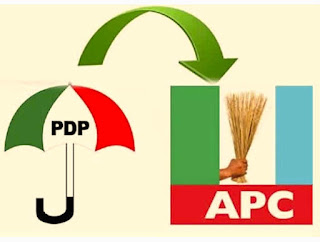NIGERIAN BICAMERALISM AND THE ARGUMENT OF POSSIBLE UNICAMERALISM: THE ISSUE OF COST REDUCTION IN GOVERNANCE. Written by KEMKA S. IBEJI
The decisions made by the nationalists who birthed independent Nigeria were largely on principles and ideology. Thereafter, it has all been sentiments and emotional. How can people agitate for unicameralism as against bicameralism. Those who had bite on a little study of primary government in secondary school education will understand the need, merits and advantages of bicameralism over unicameralism.
It might, at this point, be necessary to explain what both concepts mean. When we mention unicameralism and bicameralism, we are just talking about the legislature or law making arm of the government of any institution or state. State here also connotes country or nation with sovereignty or quasi sovereignty, as the case may be.
By the way, the legislature is that arm of government that is saddled with the responsibility of making laws for the people and the land. Although the judiciary can as well make laws through judicial precedence and the executives by somehow by Executive Orders, it is the primary duty of the legislature to enact laws. The Executives ensure the performances of the laws made by the legislature through execution whereas the Judiciary interpret the laws. Though, their duties interact or regularly conflict in the field, there are the principles of Separation of Powers and Checks and Balances. This is why you can see the legislature impeaching an elected member of the Executive. Also you can see the Executive being in charge of the payment of the salaries of the Legislature and also inaugurating them at inception of their tenure. Same is found with the appointment, elevation and the likes of the Judiciary personnel.
In discussing the duty of the legislature, a lot of things come into play. The first thing to remember is that the legislature is most potent signage of a democracy. Without the legislature, the people are never the owners of political powers in a representative democracy. This simply means that if the legislature is removed, the systems of government is no more qualified as a democracy. Because of this vital importance of the legislature in a state, it becomes very paramount to safeguard the institution of the legislature from hastiness, ill informed decisions, lack of rigor, and low quality decisions.
To achieve the foregoing, it was important to have the decisions of the law makers thoroughly considered before enacted into the statutes of the state. To this extent, we talk about the prominent two types of the legislature such as; Unicameralism and Bicameralism.
A unicameral legislature is that legislative outfit that has only one chamber of law makers. This is usually experienced in parliamentary system of government. In unicameral legislature, you can only have either the Senate or the House of Representatives and not both. The main dangers of this type of legislative institution is that it may lack the rigors and double checks that are necessary for thorough and reexamined views. Though it is usually faster in decision making and enactment of laws, it may also skip over necessities in the quest of being timely.
On the other hand, bicameralism is a system of law making institution whereby there are two chambers of the legislature. Such examples are in Nigeria and the United States of America. In Nigeria especially we have the Senate and the House of Representatives - the Upper and Lower Chambers of the national assembly. In our localized political parlance, we call them the Red Chamber and the Green Chamber.
Bicameralism ensures balance in decisions, well considered issues, double check of matters and rigorous attention given to concerns before they are either taken or discarded. Usually, you will have the younger people and people of lower age brackets in the lower chamber while older people are found in the Senate or upper chamber of the legislature.
The crux of the Nigerian predicament therefore will have to be readily argued in the purview of corruption than the futility of bicameralism as practiced by the government of the Federal Republic of Nigeria. If we must reduce the cost of governance, we must begin to look at the unnecessary excesses of government from all arms of government. And in the area of the legislature, we may be looking at some of the unimportant considerations and appurtenances that are not essential to the duties of the law maker and take them off the expenditure grid of the nation. These things can be their yearly change of luxurious cars, houses, wardrobes, expensive lifestyles, exorbitant motorcades, retinue of ludicrous maidens and servants, and many more.
Another very important way of managing the cost of running the legislature is ensuring that the right people are elected into such hallowed offices. People who are on a mission to serve will not be interested to see the enormous waste of resources taking place because of them. They will frown at such and will never approve of it. This is just what the government and people of Nigeria can do or begin to think of doing so as to cut down the cost of government.
However, it is also important that we appreciate the play of the electorate in getting the system into loud and stupendous spendings that are inimical to the sustenance and safe existence of the government. These are commonplace experiences that run from community lifestyle to corporate and socio-political behaviours. Our value systems have to be revalued and our approaches to life in general should be reconsidered. The cost of election which is exceedingly deformed and wrongly re-engineered by the masses or the electorate should be looked into. And finally, the processes of electing political leaders should be worthy enough to allow sane and morally considerable citizens to come in and participate. This will return government to its normal state as a place of service than a den of lordships and parlour of extravagance.



Comments
Post a Comment